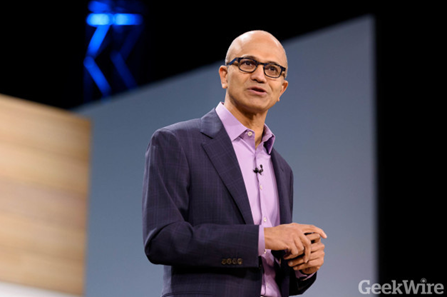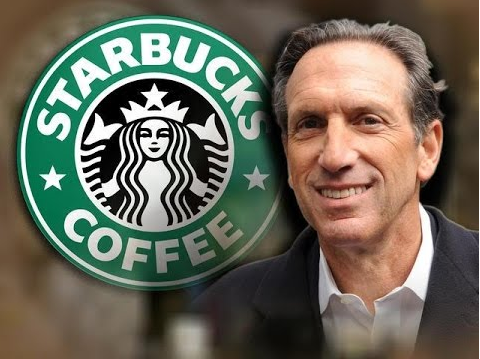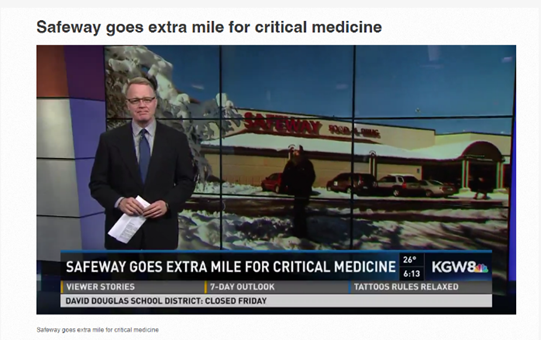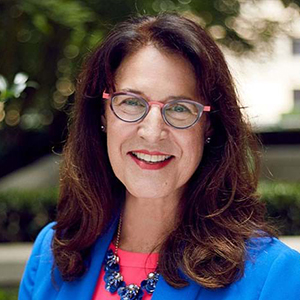
Focus on the Right Actions
As we enter a new year, and with so many changes taking place across the globe, I’ve been thinking a lot lately about what true leadership means. As a CEO myself, and a professional communicator, I believe businesses can play a critical role in solving big world problems. But individuals and brands alike need to move beyond words — to take action and understand that by doing “good” they can also achieve growth.
It starts in the C-suite. A great CEO is someone who looks beyond the bottom line, who thinks holistically about the world and the place of her business in it, and who asks: “To what end?” To me, that’s the most important question of all.
Last year at the World Economic Forum, Microsoft’s CEO, Satya Nadella, answered that very question. He started by asking, “What if only wealthy societies have access to the data, intelligence, analytics and insights that come from the power of mobile and cloud computing?”  His answer: “If we are not to be left facing a digital divide between those with access to rich data intelligence and those without, we must find ways to spread the benefits of cloud computing to all.” And he pledged $1 billion in cloud computing resources to nonprofit and non-government organizations worldwide to help make sure that the benefits of technology are shared as widely as possible. Since then, Microsoft has taken other steps to help ensure that all people have access to the benefits of the cloud.
His answer: “If we are not to be left facing a digital divide between those with access to rich data intelligence and those without, we must find ways to spread the benefits of cloud computing to all.” And he pledged $1 billion in cloud computing resources to nonprofit and non-government organizations worldwide to help make sure that the benefits of technology are shared as widely as possible. Since then, Microsoft has taken other steps to help ensure that all people have access to the benefits of the cloud.
It’s a great example of a CEO thinking holistically about the role of the company in the global community, and taking steps to have a real impact.
Commitment to purpose can’t stop with just one action. Companies must prove it through every move. Decisions must be based habitually in purpose. Increasingly, great CEOs recognize that making bold, purpose-driven commitments is good for the world and good for business. Fortune’s 2016 list of World’s Greatest Leaders tells us a lot about the challenge of being a great CEO in the 21st century. These days, Fortune reports, “it isn’t enough to be accomplished, brilliant, or admirable.” Today’s greatest leaders are doing more: They’re “inspiring others to act, to follow them on a worthy quest.”
 Starbucks’ former CEO, Howard Schultz, has always understood and pursued the “worthy quest.” He put Starbucks center-stage in the national conversation around thorny issues ranging from race relations to gay rights and veterans rights, asking the question, “How can we use our scale for good?” Now, he’s stepped down as CEO of Starbucks to focus full time on innovation and social impact activities. Unilever’s Jeremy Basset said at Cannes in June that “brands that really put sustainability at the center are growing 30 percent faster than the rest of our portfolio.” The worthy quest pays off.
Starbucks’ former CEO, Howard Schultz, has always understood and pursued the “worthy quest.” He put Starbucks center-stage in the national conversation around thorny issues ranging from race relations to gay rights and veterans rights, asking the question, “How can we use our scale for good?” Now, he’s stepped down as CEO of Starbucks to focus full time on innovation and social impact activities. Unilever’s Jeremy Basset said at Cannes in June that “brands that really put sustainability at the center are growing 30 percent faster than the rest of our portfolio.” The worthy quest pays off.
Companies can act bravely and collectively to express their purpose and make a difference as well. Last year some 90 of the world’s most prominent leaders, ranging from global CEOs to Hollywood moguls, banned together and issued a joint letter to Gov. Pat McCrory and the North Carolina General Assembly calling on them to repeal a law the leaders believed was discriminatory toward transgender students. The leaders said in clear terms that the law doesn’t reflect “the values of our companies, of our country, or even the overwhelming majority of North Carolinians.”
Of course, not all companies can act at a global scale, or pledge a billion dollars to a cause. But creating a culture of goodness, even around small acts, can be equally as powerful. I saw a great example of that just last week in a local broadcast story in (snowy) Portland, Oregon, about how a Safeway grocery store teamed up with the local fire department to deliver urgently needed medication to a man with epilepsy during the recent snow storm. In the story “Safeway Goes the Extra Mile,” the reporter said, “Stores aren’t just collections of products. They’re places run by people, who care deeply.”

These are just a few examples of CEOs and brands grappling with the question “to what end” and answering it with their actions.
And consumers take note. Today’s consumers expect the companies they do business with to stand up for values and to communicate their intentions. Generation Z members make up roughly 25 percent of the U.S. population. Study upon study shows that they’re diverse. They’re tech savvy. They care deeply about causes, such as humans’ impact on the planet, and their influence on purchasing decisions in the household is powerful.
Similarly, millennials, who make up another roughly 25 percent of the U.S. population, base their purchasing decisions on whether a brand’s values align with theirs. They ask whether companies have sustainable practices. Whether they use conflict minerals in their products. Whether they have policies to promote gender, pay equity. Companies that don’t declare their values, that don’t stand up for important causes, can be publicly shamed and become irrelevant.
It has always been challenging to stand up for what you believe. It can feel risky. But, today, more than ever, consumers expect brands, and the CEOs who lead them, to stand for something bigger and to take action. The risk is in NOT taking a thoughtful position and putting actions behind it.
We are on the cusp of big changes across the globe from Brexit to a new U.S. administration. Transitions are always a good time to reflect on our beliefs, our convictions, our aspirations and even history. More than 150 years ago in the U.S., during a time of unprecedented change, another new U.S. president took the oath of office and prevailed on the people to think about “the better angels of our nature.”
My view is that brands, too, need to think about the better angels of their nature. It’s a timeless idea.
Read more posts from WE Global CEO and Founder Melissa Waggener Zorkin here.
Follow Melissa on LinkedIn and Twitter.
The latest blogs from WE
Decoding Gen Alpha: A Primer on the Next Gen of Consumers
Why Gen Alpha Will Fuel Spending This Season
Why Reputation Is a Business Driver in Healthcare


